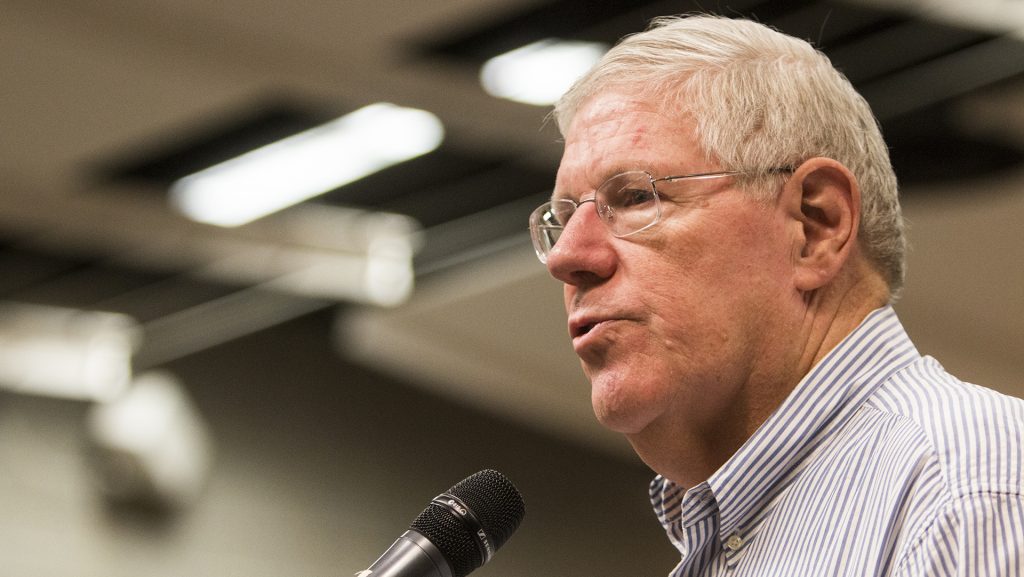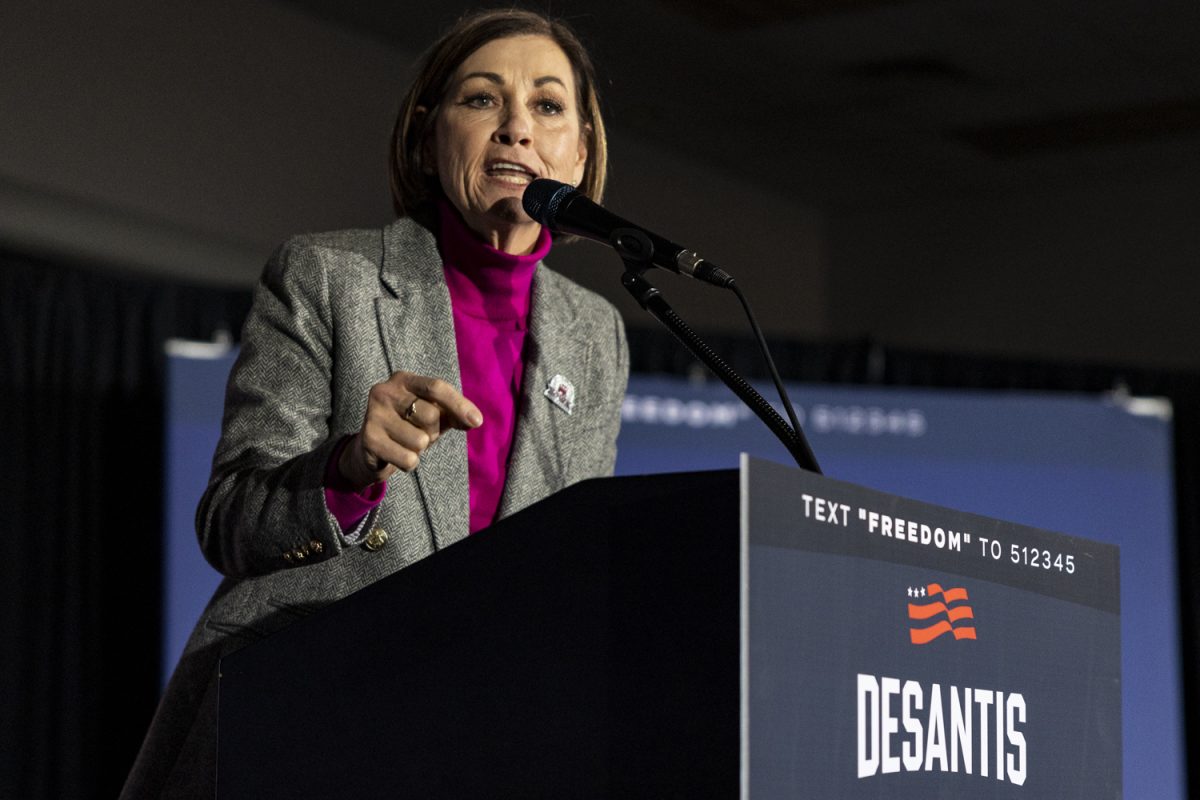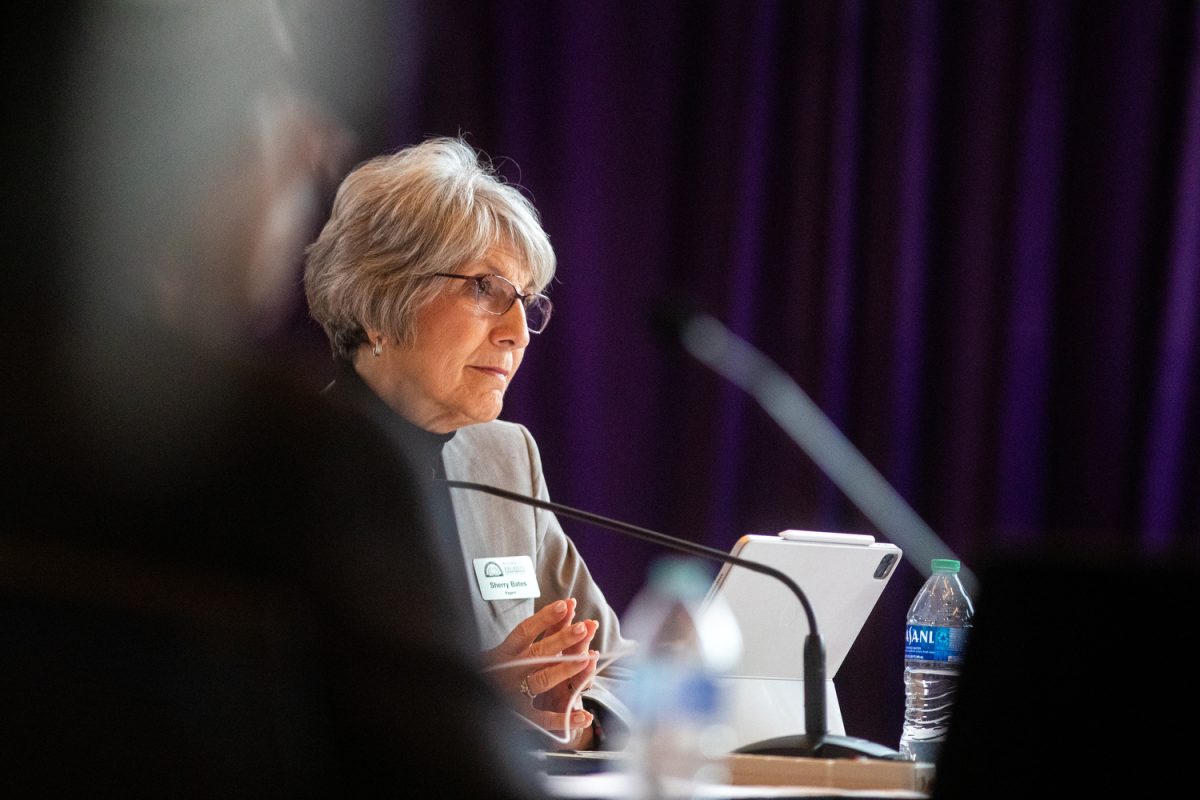Johnson County physicians met with their representatives to talk solutions for health concerns in the state.
Sarah Watson
Iowa legislators gave Johnson County physicians a lowdown on what’s next for addressing opioid abuse, mental-health care, and an extreme bill to limit abortion at a Johnson County Medical Society meeting on Feb. 24 at the University of Iowa Club.
Sen. Joe Bolkcom, D-Iowa City, Rep. Mary Mascher, D-Iowa City, and Sen. Bob Dvorsky, D-Coralville, were in attendance along with approximately 30 physicians. Rep. Bobby Kaufmann, R-Wilton, was unable to attend.
First on the agenda was addressing the opioid crisis. In Iowa, opioid deaths have quadrupled in the last 20 years, according to a report from the UI College of Public Health.
Legislators and physicians spoke favorably about a bipartisan bill eligible for debate on the House floor that would require prescribers to register for Iowa’s Prescription Monitoring Program, an electronic database started in 2009 that tracks controlled-substance prescriptions so physicians can tell if patients are refilling prescriptions at numerous locations.
Currently, only 46 percent of Iowa prescribers are registered to use Iowa’s database.
“I think the bill is going to move forward, and it’s one piece of getting a handle on the opioid issue,” Bolkcom said.
The bill would also require reporting within 24 hours, prohibit controlled-substance prescriptions of more than six months, and offer Good Samaritan protection in overdose situations.
In another effort on the topic of substance abuse, Sarah Ziegenhorn, co-chair of Iowa Harm Reduction Coalition, noted legislation that passed committee to decriminalize approved needle-exchange programs to curb HIV and hepatitis C transmissions from dirty needles.
Although legislators in attendance supported the measure, they feared the bill may be stymied on its way to discussion on the Senate floor.
“There is still a lot of stigma around needles, and there are still legislators who believe that by exchanging needles like that, you are condoning drug use,” Mascher said.
RELATED: University of Iowa OB/GYNs, Board of Regents warn Legislature against Heartbeat bill
Ziegenhorn, however, said she didn’t think the bill could be kept waiting.
“I do run the illegal needle exchange in Cedar Rapids, and many of our participants who hear that this bill isn’t going to pass will say things like why are people wanting me to die so much,” Ziegenhorn said. “I think there is some urgency with this.”
Legislators also noted mental-health care in Iowa and praised a sweeping plan to address crisis situations moving through the Iowa Senate.
The bill would establish six crisis centers, a 24-hour crisis hotline, and double the current number of Assertive Community Treatment teams, which monitor those with chronic mental-health problems and encourage patients to stay on their treatment plans.
Human Services Director Jerry Foxhoven has said Iowa Gov. Kim Reynolds supports the plan. However, legislators at the forum expressed concern about the bill’s chances to gain financial backing because the Legislature is working to make midyear budget cuts to make up for projected budget shortfalls.
“There’s nothing to disagree with here; the challenge, I think, is actually putting the money up to make it happen,” Bolkcom said.
The discussion steered toward the Fetal Heartbeat bill, which would effectively ban most abortions in Iowa. Johnson County legislators said they didn’t think the bill would have enough votes to become law despite passing out of the Judiciary Committee.
“I don’t think this is going to become law. It’s really extreme, it’s unconstitutional, it’s a complete waste of time,” Bolkcom said. “If we do [vote to pass the bill in the Senate], it will go to the House, and it will die there.”
The state Board of Regents has opposed the bill, saying the UI’s OB/GYN residency program could lose accreditation if access to abortion training is not offered.
“This is one of those things where they’re appealing to their narrow, narrow base, and it’s not going anywhere,” Dvorsky reassured the group.
The Iowa Medical Society, the parent organization of the Johnson County affiliate, supports bills concerning opioids and mental health and opposes the abortion bill.







